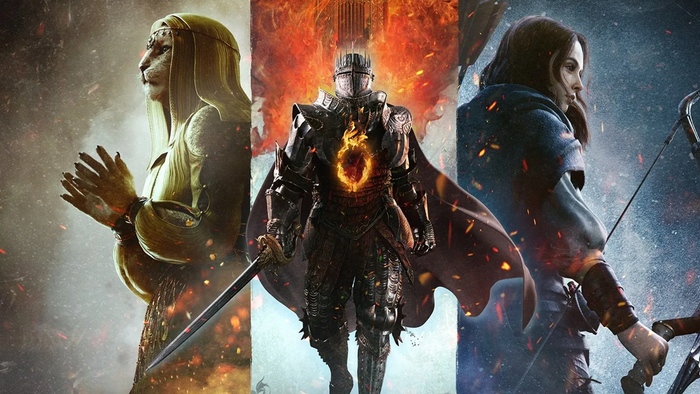
Featured Blog | This community-written post highlights the best of what the game industry has to offer. Read more like it on the Game Developer Blogs.
Examining the difference between player and character skill in videogames and determining how skill progression systems can complement the gameplay of a game.

Player Skill, Character Skill, and Skill Progression Systems
Today I want to talk about the differences between player skill and character skill in videogames, and how they relate to skill progression systems. I think it’s a simple topic that most people understand at a glance, but often-times in videogames I see design decisions that seem to take these differences for granted and the game suffers as a result.
First let’s define these terms. Player skill is the skill that the player has at whatever game is at hand: how accurate they can shoot in Counter-Strike, how well they can lay blocks in Tetris, how well they can shoot the ball in basketball, etc.
Games can be considered “deep” if they offer a lot of room in their mechanics for players to develop their skills: a beat-em-up game is considered deep if it has a lot of combos to master (and also requires the player to learn and use them) compared to a beat-em-up that only has a few combos to master.
Character skill exists exclusively in games with story: I would define it as the skill or power of the player-controlled character through narrative and/or gameplay mechanics. This is most apparent in classic RPGs such as Dungeons and Dragons where character skill is portrayed through a level that goes up as more experience points are gained.
In terms of player-involvement, these two terms are at the opposite ends of the spectrum: player skill is completely determined by what the player does and how well they do it, while character skill is completely unaffected by what the player does. What I mean by that last statement is that when for example an RPG character increases a level and they now do more damage per attack, this is unaffected by how “well” the player performs the attack.
In modern gaming, many traditionally action, player-skill-based genres are now incorporating character-skill-based RPG elements into their designs, to varying degrees of success. In fact I was amazed at how it seemed like almost every game I played last year had some sort of skill-tree or unlock-system implemented.
This is really just a natural progression of a design-concept that has persisted in videogames for decades: to slowly give the player more mechanics to use throughout the course of a game (for example in the original Metroid game players were given more powers one at a time throughout the game). I will call this concept the “skill progression system”.
I think the skill progression system offers two main benefits that encourage so many designers today to use them: it allows the player to more easily learn the mechanics of the game (by trickling in new mechanics over time for the player to master), and it generally offers interesting narrative opportunities.
When used well, it can incredibly benefit the design of the entire experience: players will constantly be given new mechanics to explore every time they start to feel bored with the previous mechanics.
The ideal use would be in a game that has mechanics that are too complex for a player to understand fully at first, and so it is piecemealed to them over time by revealing new mechanics (introducing new abilities/obstacles) or deepening existing mechanics (adding more complex behaviors to abilities/obstacles). However the poor use of this system can actively impair the player’s enjoyment of the game.
A great example of a skill progression system in my opinion would be the Angry Birds series (although admittedly, the skill-ceiling in Angry Birds is quite low for the most part). After every so many levels the game gives players a new bird to work with that has its own set of behaviors that the player needs to master. No bird is necessarily “better” than any other bird and only offers new skills for the player to master instead of making previous mechanics obsolete or shallower.
A poor example of a skill progression system in my opinion would be the booster system in the Uncharted series’ multiplayer. Players equip different boosters that are each a simple tweak of a certain variable: less recoil, faster reload speed, etc. Instead of offering new avenues for player skill to grow, each booster shrinks existing avenues by making each skill easier to master (for example I would consider it a skill to time reloads in the game, but this becomes less of a notable skill when that time is shrunk).
This is an example I think of failing to realize what sort of skill progression system should be associated with a game. Uncharted’s multiplayer is pretty deep in the player skill pool: players learn how to use the mechanics (aiming/moving, memorizing map layout/weapon placements, etc) and their success in the game is based on that mastery of these skills.
The skill progression system in the game however, takes a page out of many character skill based games and makes the player’s character more powerful. Instead of offering a skill progression system that offers new skills for the player to gain and master (and thus complementing the main gameplay draw of the game), the skill progression system in Uncharted only makes certain player skills less valuable by focusing on character skill instead.
Many of my favorite games have flawed skill systems. The God of War series for example is a pretty player-skill-based game: players must learn all of the combat mechanics to be able to progress through it. Like many beat-em-up games, the series gives players a basic skill-set in the beginning (and if I may rant a little, the GoW series always give the player too few basic moves in the start :( ) and allow the player to level up their weapons over the course of the game.
Every time the player levels up their weapon, they are given a few new moves that increase their skill set and give them a new tool to use in combat, which is all great. However the designers have decided to also increase the basic attack damage for each upgrade as well, meaning that by the end of the game a basic attack is much more powerful than it was before without the player’s skill being involved at all.
I would say this is a counter-intuitive to the design of the game because the fun from God of War comes from the challenge involved in the combat. It’s fun in the game to learn the different combos, memorize enemy attack patterns, learn when to strike and when to block, etc.
By tweaking a few numbers that involve player health and attack damage, an encounter that was once fun can suddenly become a bore when players no longer feel challenged because their character has become so much more powerful than they were before. Players are robbed of their own skill in favor of character skill.
Many games suffer from this problem and players either end up feeling ridiculously overpowered and unchallenged by the end of the game or designers end up arbitrarily increasing the stats of the obstacles in the game to match the skill of the player’s character, essentially nullifying the entire process.
I think it’s important for designers to decide what sort of gameplay they have before implementing a skill progression system into their game. If the fun in your gameplay comes from player skill activities, it would be wise to use a skill progression system to complement this element by perhaps adding in more skills or deepening existing skills.
If your game is more about character skill (such as a JRPG) it would be probably be wise to have a skill progression system that focuses on character skill (such as increasing effects of attacks) rather than for example adding in an entire new gameplay mechanic.
Of course I feel like it should be the goal for designers today when creating player-skill-focused games to create a gameplay system that is so deep yet so approachable that arbitrary skill progression systems shouldn’t be needed. A few games have done this incredibly well (I would like to give a shout-out to StarCraft and Counter-Strike here, although maybe both are a little too complex for many to approach at first), and I strive to do the same with my own games.
Read more about:
Featured BlogsAbout the Author(s)
You May Also Like








